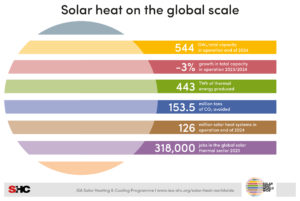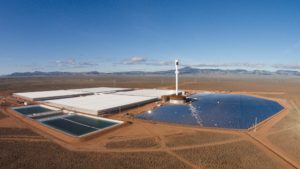Australian RECs: An Overview after 8 Years of Certificate Trading
May 22, 2009
REC prices in Australia
As a purchaser of a solar hot water system in Australia, you not only benefit from a federal or state rebate, but are also able to sell so-called Renewable Energy Certificates (RECs). After these certificates had been introduced in 2001, they became a key factor for the 30% annual growth of the Australian solar thermal market until 2004. The following two years market growth dropped because of the declining value of RECs.
 Spot prices for Renewable Energy Certificates (RECs) from February 2002 to June 2007 in CAD/REC.
Spot prices for Renewable Energy Certificates (RECs) from February 2002 to June 2007 in CAD/REC.
Source: see Review of REC market (link below)
At the beginning of 2002, the REC spot price was around 35 Australian Dollar (AUD). By mid-2005, prices had fallen sharply. The “Review of REC markets” report from October 2007 claimed that, “the fall in prices was due to the perception of a large surplus of banked RECs, and solar water heater manufacturers wanting to liquidate their stock of RECs. Liable parties were holding back their purchases of RECs until they perceived the price of RECs had bottomed. Liable parties were also reluctant to enter into long-term contracts with renewable generators until a clear picture emerged of the supply/demand balance for RECs.” REC prices increased steadily after the election of the Labor government at the end of 2007, with spot RECs trading above AUD 43 in 2008.
Market leader Solahart is currently offering to buy its customers’ RECs for AUD 43.50. According to http://www.greenmarkets.com.au, spot prices for RECs have stabilised at around AUD 50 since November last year. Although an REC can mean a rebate of several hundred Australian Dollars to a solar water heater buyer, the certification system can also hold the market back if credit values are falling. The authors of the REC report from October 2007 said that, “solar water heater sales are not increasing as fast as in the past because of low REC prices.”
That said, Australian consumers can certainly not complain about a lack of funding. For example, anyone who replaces an existing electric hot water storage system with a solar hot water system or a heat pump can claim a rebate of AUD 1,600 (US$ 1,090) for its substitution. Then, there are the rebates of the individual states. Victoria, for instance, offers up to AUD 2,500, depending on the size of the system, its performance and whether the applicant qualifies for the rebate of the Australian government. Together with the proceeds from selling their RECs, buyers can save up to AUD 4,000, which in some cases can represent more than half of the total expenses.
RECs are environmental certificates you receive when you purchase a solar installation. In 2001, the former liberal government of Australia set a so-called Mandatory Renewable Energy Target (MRET) (under the Renewable Energy Act of 2000), which forces energy retailers to obtain part of their energy supplies from renewables. If they are unable to do so, they can purchase an equivalent amount of RECs, which, in turn, are created by installations that generate renewable energy, such as solar electric panels or solar hot water systems. For solar water heaters, one REC represents the equivalent of one MWh of thermal heat generation.
When homeowners buy a solar water heater or a solar electric system, they will receive a certain number of credits, which will be determined by independently measuring the performance of the system they bought. The RECs’ amount additionally depends on the respective installation locations, as the regulating agency names four different installation zones in Australia, based on climate and solar radiation levels. You will find a list of all registered systems on the web page ret.cleanenergyregulator.gov.au/Hot-Water-Systems/eligible-swhs. The solar companies handed over the measuring of their systems’ performance to an independent company, so that homeowners can claim the appropriate number of credits for the particular system they have purchased. Most companies offer to purchase RECs from homeowners for a fixed price. Once they have acquired a reasonable number of RECs, they will sell them on to the companies that need to buy them. Typically, these are electricity-generating companies or companies like aluminium smelters or steel mills, which consume large amounts of electricity. Purchasers of solar hot water systems can sell RECs on the open market – but at their own risk of doing so, because prices can be volatile, as was shown beforehand.
More information about RECs online:
You will find the Review of REC markets, a Report to office of Renewable Energy Regulator
http://www.orer.gov.au/publications/pubs/modelling-2007.pdf
The Register of Solar Water Heaters and the Postcode Zones are ready for download under http://ret.cleanenergyregulator.gov.au/Hot-Water-Systems/eligible-swhs
Latest spot prices for RECs are published on http://www.greenmarkets.com.au


